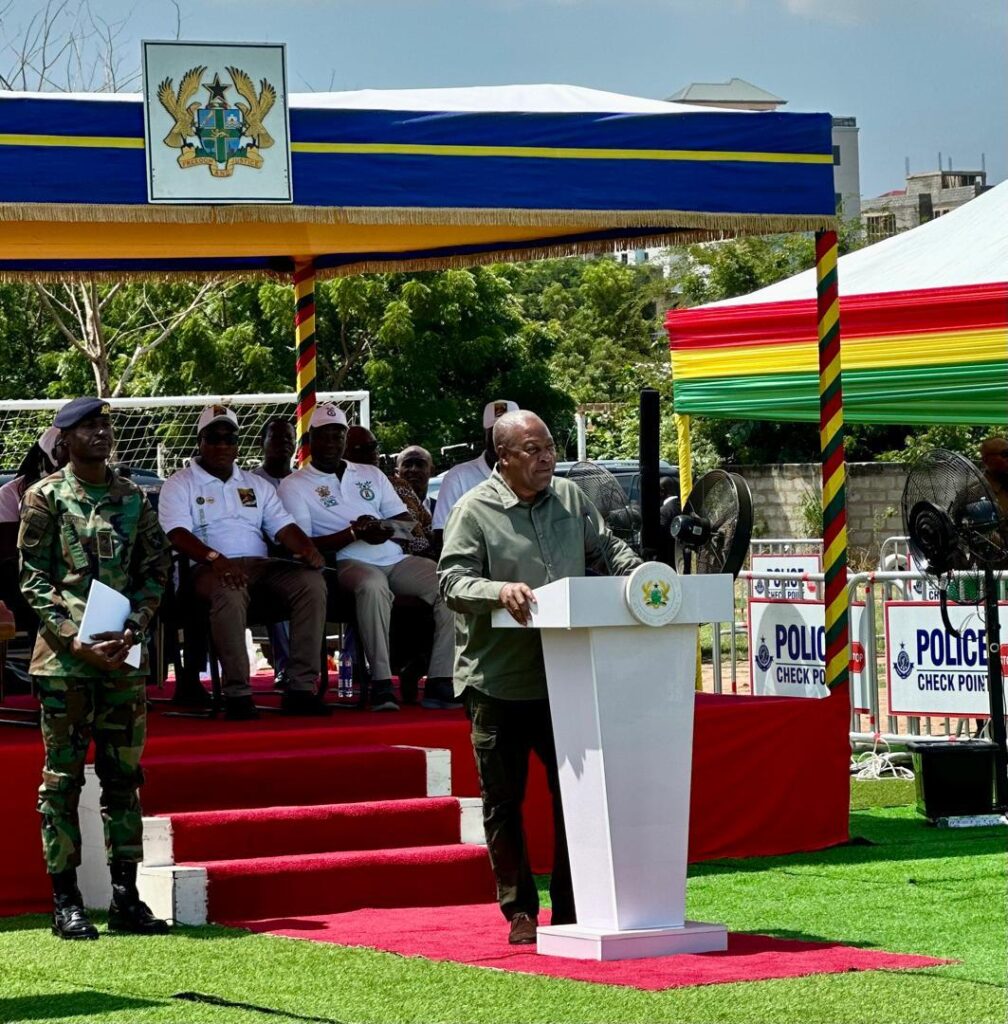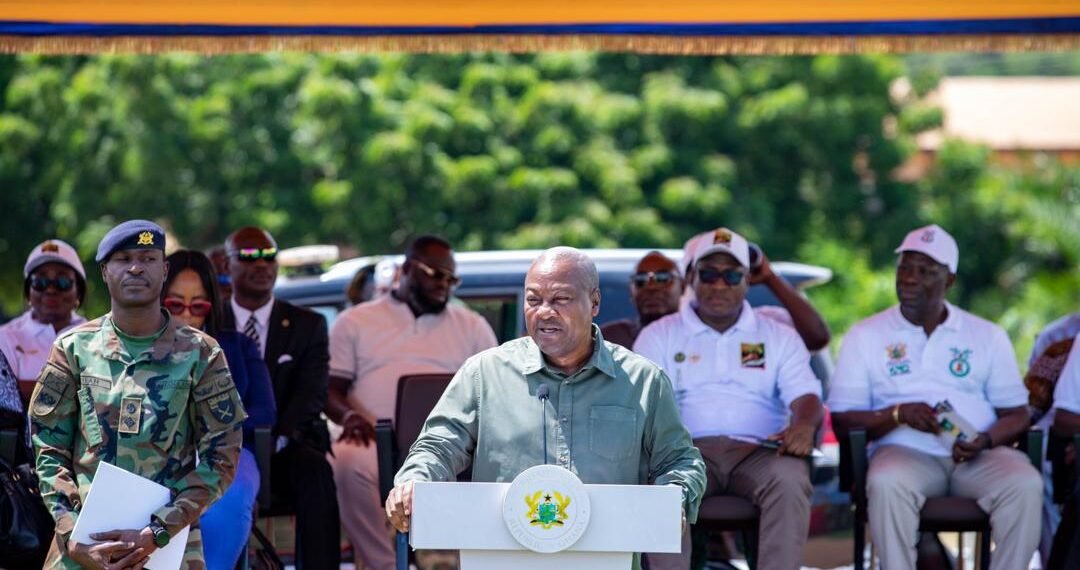As the world commemorated World Environment Day, President John Dramani Mahama used the occasion to underscore his administration’s commitment to curb the escalating threat of illegal small-scale mining (galamsey) to Ghana’s forests and water bodies, while lauding recent government-led efforts to curtail the menace.
Speaking at the Kwabenya Community Senior High School, President Mahama underscored the importance of environmental preservation beyond tree planting and plastic pollution campaigns, urging collective national resolve to sustain gains made in the fight against galamsey.
In a strong and passionate appeal, President Mahama highlighted the vital role Ghana’s forest reserves play in safeguarding water sources, cautioning that the destruction of forests through illegal mining activities directly threatens the nation’s rivers and the future of generations yet unborn.
“Our rivers take their source from our forest, and so if we destroy our forest, our rivers will also dry up. And so this fight is very important in order that we can hand over a good environment to our younger brothers and sisters and our children who are yet unborn”.
HE President John Dramani Mahama
Commending the joint effort between the Ministry of Environment, Science and Technology, the Ministry of Lands and Natural Resources, and the security services, President Mahama revealed significant progress in the battle against galamsey.
He noted that 300 excavators have been seized from illegal miners as part of the clampdown, indicating a serious step towards dismantling the illegal mining machinery that has long contributed to environmental degradation.

Recovery of Encroached Forest Reserves
Of particular concern, President Mahama mentioned, were nine forest reserves that had been effectively taken over by heavily armed illegal miners, creating “no-go” zones that endangered the safety of forest guards and law enforcement personnel.
He praised the collaborative operations between the military and the police, which have successfully evicted illegal miners from eight of these high-risk zones.
According to President Mahama, the liberation of the last remaining red-zone reserve is underway, marking a critical victory in reclaiming national resources from criminal occupation.
“The nine at the red zone were armed to the teeth. Those were the more difficult ones and so they decided to tackle those first. And now they will move on to liberate the other 44 forest reserves.”.
HE President John Dramani Mahama
This, he said, is crucial for restoring Ghana’s remaining 288 forest reserves, 44 of which have so far been compromised by illegal mining activities.

President Mahama’s statement was more than a ceremonial address; it was a clarion call for enduring vigilance and unwavering political will to end the galamsey scourge once and for all.
While lauding the current efforts, he also implicitly stressed that lasting solutions will require a commitment that transcends political cycles and administrative tenures.
The President’s emphasis on safeguarding the environment for posterity resonated with the broader theme of World Environment Day 2025, which centered on ecological restoration and environmental justice.
His remarks not only highlighted the environmental risks posed by galamsey but also called attention to the intertwined relationship between Ghana’s forests, water systems, and the well-being of future generations.

By drawing a direct connection between the destruction of forests and the eventual drying up of rivers, Mahama presented the fight against galamsey not just as a legal or security challenge, but as a moral and generational imperative.
He urged Ghanaians to understand the deeper consequences of inaction, and to support ongoing efforts to reclaim and protect the country’s natural heritage.
With illegal mining continuing to pose a severe threat to ecosystems across the country, President Mahama’s call for sustained action underscores the critical need for sustained action to be pursued.
READ ALSO: Blair Institute Warns Reeves: ‘Invest, Don’t Just Cut’



















